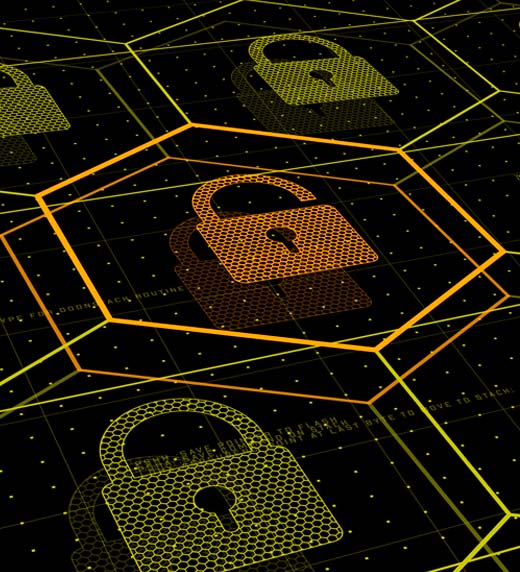
As a leader in SaaS, refining your product and driving sales is likely your main priority, especially during your organization’s early stages. But you don’t want to let your passion for the product distract you from meeting SaaS compliance certifications and regulations that are important to the integrity of your financials and your data privacy and cybersecurity programs.
Failing to tend to SaaS compliance not only creates security, financial and legal risks, it also makes you lose out on the benefits for your business and its future growth. Below we look at the most common SaaS compliance frameworks, how driving better compliance can bring more value, and some practical ways you can begin to improve.
These are the top certifications and regulations you need to know to boost your SaaS compliance. Note that some requirements may differ based on your organization’s industry and location.
SaaS organizations that are publicly traded, are wholly owned subsidiaries or are intending to go public must comply with the Sarbanes-Oxley Act (SOX). SOX compliance requires organizations to build and maintain internal controls and procedures for financial reporting. It is crucial for public SaaS companies because it safeguards the accuracy and reliability of financial disclosures, reduces the risk of financial fraud and increases the transparency of financial reporting.
Obtaining a System and Organization Controls (SOC) 2 report helps your SaaS company demonstrate its commitment to securing and protecting customer data.
SOC 2 is an internal control report created by the American Institute of Certified Public Accountants. It is issued to service organizations by auditors who assess the effectiveness of non-financial controls related to data management security. (Note that a SOC 2 report is not the same as a SOC 1 report, which focuses specifically on controls for financial reporting.)
Though a SOC 2 is not required by law, it is important for meeting compliance requirements that you or your various customers, prospects or vendors may have. For example, SaaS providers in fintech and health tech likely need SOC 2 reports because of the highly regulated nature of both industries. Likewise, ad tech firms must diligently adhere to continually evolving regulations surrounding consumer data as it relates to the advertising ecosystem to maintain consumer and brand trust.
Outside of those industries, customers and prospects often drive the need for SOC reports. The risk of data breaches has prompted more businesses to take extra precautions to ensure they’re working with providers who have proof of smart security practices, so showing preparedness with a SOC 2 has become an important competitive advantage.
ISO 27001 certification is an internationally accepted standard for information security governance. While it’s not required for most companies, more and more U.S.-based multinational corporations are requesting that their vendors, including SaaS providers, provide proof of ISO 27001 certification.
This serves as a seal of approval that gives companies comfort that it’s safe to do business because the certification is evidence that the vendor prioritizes information security. The standard demands a rigorous assessment and testing of an organization’s leadership, planning, support, operation, performance evaluation, improvement and more. Privacy regulations
There are also two data privacy regulations to consider: GDPR and CPRA.
The General Data Protection Regulation (GDPR) is a European Union-based data protection law that sets guidelines around the processing of personal data of EU users. If your business collects, processes and stores data of people who live in the EU, GDPR could affect the way you handle that data.
GDPR is enforced against U.S. companies, and EU member regulators have initiated investigations and imposed fines on several companies for GDPR violations, including data breaches or unlawful processing of data.
GDPR is also a global privacy standard. Many countries apply its general approach to their local privacy regulations, so it’s important for your organization to consider the requirements of GDPR regardless of where your customers are located. Overall, staying on the pulse of GDPR is a smart way to stay current with global privacy regulations and adapt as the regulations evolve.
The California Privacy Rights Act (CPRA) is a comprehensive privacy law that expands the privacy safeguards that were previously enforced by the California Consumer Privacy Act.
The CPRA increases consumer rights and imposes additional obligations on businesses, including expanded data subject rights, added privacy protections for California employees with respect to the collection and sharing of their personal data, and the creation of the California Privacy Protection Agency to enforce the CPRA.
You need a plan for CPRA compliance if your organization processes the personal information of California residents or conducts business in the state. And because other states have implemented similar privacy laws, including Colorado, Connecticut, Utah and Virginia, organizations operating within those states (or anticipating imminent privacy laws in their own state) should also begin to prepare.
Are you looking to secure funding? Are you hoping to eventually scale your business? Do you want to be prepared for a future M&A?
By meeting SaaS compliance in the early stages of your business, you are better prepared to land your big customer, more likely to secure funding and can more easily facilitate rapid growth.
By learning about the compliance frameworks and implementing strategies to go beyond the baseline requirements, you can help drive added value that will benefit your business today and in the future.
Ready to improve SaaS compliance at your business? Here are a few ways to get started.
If you need help improving your governance practices to maximize SaaS compliance, a governance, risk and compliance (GRC) tool can be a useful software solution. It can help you manage regulatory requirements, communicate compliance obligations to your employees, perform self-auditing and manage key policies and procedures. It can also provide automated workflows for policy management, risk assessments, compliance monitoring and reporting, and incident tracking.
Your SaaS compliance will improve when you hire the right people who can help establish proper governance and promote best practices. This involves conducting risk assessments, defining policies and procedures, building internal controls, setting guidelines for working with SOC vendors or third-party management, creating incident response plans and improving documentation processes for handling sensitive data. By filling any talent gaps, you can minimize risks and enhance the effectiveness of your compliance practices.
You can also engage with an advisor who has in-depth knowledge of the breadth of regulations that may affect your business. Instead of scrambling to meet compliance frameworks and risking not doing it well, an advisor can help you avoid disruption by offering strategies and tools that get your compliance program in order.
SaaS compliance may be a less exciting part of your business. But as the wisest leaders know, adhering to the top compliance frameworks is important for preserving the integrity of your data privacy and cybersecurity programs, reducing risk and building consumer trust. Once you make progress with the steps to improve compliance, you'll see that you’re better positioned for business opportunities, whether it's securing funding or scaling your business — and that's certainly worth the effort.
To learn more about meeting SaaS compliance requirements or leveraging them to benefit your organization, contact our Cybersecurity experts.


